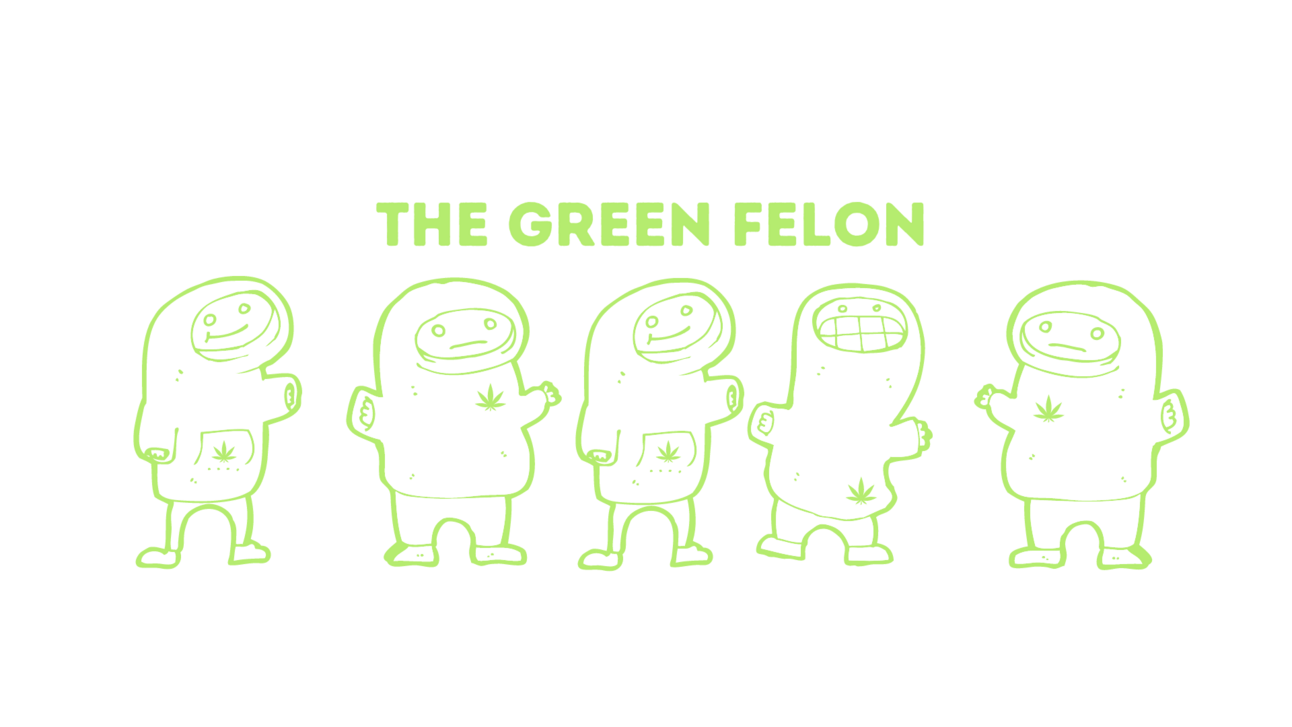
News 📸 Highlights:
Verilife outlines 🔲 a traditional method for brewing THC-infused tea. The process involves decarboxylating cannabis flower 🧄, then simmering it with a fat source like butter or coconut oil to facilitate THC extraction.Verilife
Mankind 🦸♂️ Cannabis presents two distinct recipes: one for non-psychoactive THCA tea and another for psychoactive THC tea. The THCA tea is made by steeping raw cannabis flower 🥀 without decarboxylation, preserving the non-intoxicating compound.Mankind Dispensary
High Society delves into various types of cannabis teas 🍵, including THC-dominant, CBD-dominant, and balanced THC/CBD blends. The article emphasizes the importance ⚠️ of decarboxylation and the use of fats to enhance cannabinoid extraction.High Society Dispensary

Quick Read 📙:
Decarboxylation Dynamics 🔬: THC must undergo decarboxylation to become psychoactive; this molecular conversion is essential for effective THC ✳️ tea infusion and bioavailability.
Lipophilic Binding Principles 🧈: Due to THC’s hydrophobic nature, fat-based agents like coconut oil or butter are required to facilitate 📍 cannabinoid solubility during tea preparation.
Brewing Methodologies Compared 🧪: From cannabutter simmering to tincture infusions, each THC tea technique offers varying levels of potency, onset time 🕤, and flavor complexity.
Pharmacokinetic Distinctions 🧠: THC tea initiates delayed, prolonged effects due to hepatic metabolism, resulting in 1️⃣1️⃣-Hydroxy-THC—a more potent psychoactive compound.
Regulatory Implications 📜: THC-infused tea remains legally nuanced; despite its herbal disguise, its legality depends on jurisdictional cannabis laws and potency thresholds ♨️.

Stirred, Not Blazed: The Scholarly Science of Brewing THC Tea
In the sprawling universe of cannabis concoctions, THC tea is quietly steeping its way into the mainstream 🧭. A far cry from the clumsy edibles of yesteryear, this aromatic beverage promises a ritualistic escape from conventional consumption while invoking centuries of herbal infusions 🫖. But don’t be fooled—brewing THC tea isn't as simple as dunking a nug in boiling water 🚿. No, dear reader, this is a sophisticated dance of decarboxylation, lipid science, and plant alchemy.
Welcome to the renaissance of cannabis-infused tea—a fragrant intersection of pharmacokinetics and potpourri ☘️.
Let’s Get Chemical: Why Brewing Weed Isn’t Like Chamomile 🌡️
Tetrahydrocannabinol (THC), the psychoactive compound in cannabis, is hydrophobic 🧫. That means it refuses to dissolve in water—no matter how hard you steep, simmer, or summon the spirits of herbalists past 🧙. So, when people ask, “Can I just brew weed like mint leaves?” the short answer is a tragicomic “Nope”.
To liberate 👊 THC from its botanical cage, you must first decarboxylate the plant matter. This involves heating it to approximately 220°F 🌇 (104°C) for 30 to 45 minutes. This molecular process converts the non-psychoactive THCA into psychoactive THC. Without decarboxylation, your tea might be calming, but it won’t be elevating.
Even then, THC 🥑 won’t just waltz into your hot water unless you’ve brought a plus-one: fat. THC is lipophilic and clings to fats like a stoner clings to conspiracy theories during a late-night sesh 📡. Coconut oil, butter, or milk must be introduced to coax the THC into a soluble state.

The THC Tea Trinity: Water, Fat, and Fire 🔥
To make a professional-grade THC tea, three core elements must be choreographed with precision 🎻:
Decarboxylated Cannabis: Your starting material, typically a high-THC strain, must be gently baked ahead of brewing 🍞.
Fatty Agent: Introduce whole milk, butter, coconut oil, or a fatty creamer to allow THC absorption 💧.
Simmering Patience: This is no espresso shot—infusing THC tea can take 30 to 60 minutes over gentle heat 🍲.
Here’s a technical breakdown 🪚 of three popular THC tea brewing methods, summarized in the table below:
Brewing Technique | Time Required | Potency Control | Flavor Complexity | Fat Required | Beginner Friendly |
|---|---|---|---|---|---|
Cannabutter Tea | 4️⃣5️⃣ min | Moderate | Herbal + Buttery | Yes ✔️ | Yes ✔️ |
Coconut Milk Infuse | 6️⃣0️⃣ min | High | Rich + Creamy | Yes ✔️ | Average 🧑🍳 |
Tincture Top-Off | 5️⃣ min | Precision High | Tea-Dominant | No (pre-infused) 🚫 | Yes ✔️ |
Each technique has its merits, and like all artisanal crafts, the ideal approach depends on your palate, patience, and pantry 🔍.

The Debate Steeps On: Loose Leaf vs. THC Bags 🛍️
Now that gourmet tea shops are entering the THC space, the format debate has intensified like a heated Reddit thread 📲. Some purists argue for loose-leaf cannabis mixed with herbs like lavender or lemongrass, claiming it yields a fuller terpene profile 🪻. Others prefer commercial THC tea bags for convenience, dosage control, and kitchen cleanliness 🧼.
Pro tip: Avoid cannabis flower that's too finely ground. It can slip through mesh strainers and turn your soothing cup into a gritty swamp 🐊.
Whether you lean 🕺 toward hand-mixed botanicals or lab-dosed sachets, one truth remains: strain selection matters. A sleepy indica may turn your tea into a liquid lullaby, while a citrusy sativa could result in an energized earl grey buzz 🪁.
Flavor Pairing? It’s a Steep Curve 🧁
Flavor synergy in THC tea is equal parts science and culinary witchcraft 🧙♀️. The earthy, sometimes skunky undertones of cannabis can be beautifully offset with complementary botanicals:
Lemon Peel & Mint: Elevates citrus terpenes like limonene 🍋.
Chai Spice Mix: Masks strong cannabis notes with cardamom and cloves 🌰.
Chamomile & Lavender: Amplifies sedative strains for nighttime serenity 💤.
Steeping times for adjunct herbs should be carefully managed. Overbrew and you risk bitterness; underbrew and you sip mediocrity 😑.

Why THC Tea Hits Differently 🤪
Unlike smoking or vaping, which offer nearly instant effects, THC tea can take 30 to 90 minutes to kick in 🕰️. That’s because cannabinoids in the digestive tract are subject to first-pass metabolism—a biochemical detour through the liver where THC is converted into 11-Hydroxy-THC 🩺. This metabolite is known for being significantly more potent and longer-lasting than its smoke-bound sibling.
Translation? A THC tea high can sneak up on you like an introvert at a philosophy conference 🎓.
Before you invite your neighbors 🙋♂️ to your next ganja garden party, check your state or country’s cannabis laws. THC tea, despite its innocuous aesthetic, is still categorized as a controlled substance in many jurisdictions 🧳. Even in legal states, the act of creating a homemade edible—yes, tea counts—may legally differ from purchasing a dispensary-sanctioned one 🛒.
In regulated markets, commercial THC tea 🪣 products are subject to milligram caps, packaging regulations, and testing requirements. And don’t even think about taking it on a plane—federal airspace is a cannabinoid no-fly zone ✈️.

Steep 🟩 Thoughts
Brewing THC tea is not an act of rebellion 🔪, nor a shortcut to high society. It’s a ceremony—a confluence of phytochemistry, patience, and poetic indulgence 🧘. Done right, it’s a meditative marvel that speaks to our desire to experience cannabis without combusting it.
Next time someone scoffs at your steaming mug of THC-laced Darjeeling, remind them: you're not just getting high—you're participating in an act of plant-based erudition 📚.
If your tea 🍶 could talk, would it whisper wisdom, or just giggle uncontrollably? 🫣
🔓 Simplify Everything 🥰

The information provided in this newsletter is for informational purposes only and does not constitute medical, legal, or professional advice. Always consult with a qualified professional before making any decisions based on the content shared here.

